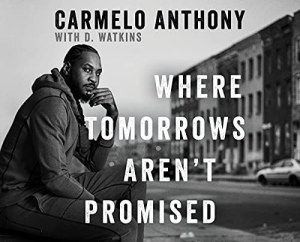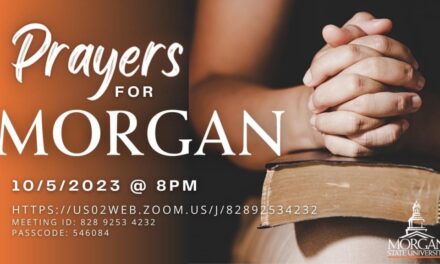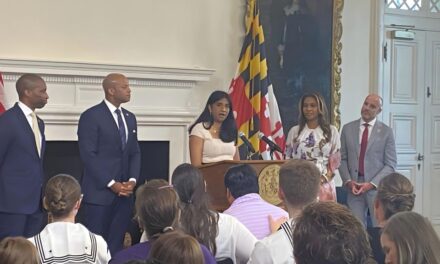
(Courtesy Photo)
By Ralph E. Moore Jr.
Special to the AFRO
Carmelo Anthony’s memoir, “Where Tomorrows Aren’t Promised” (co-authored with D. Watkins) reads like a friendly conversation on the front steps of a rowhouse on a calm summer night. It is an easy read in tone and accessible storytelling style. The book starts with his early life in Red Hook, Brooklyn, New York but ends somewhat abruptly in 2003 with his draft into the NBA at the same time as LeBron (King) James. There is never a dull moment in the book as trite or commonplace as that may sound.
The reader will meet Carmelo as a little boy looking up to his dad, his legendary namesake (Carmelo Sr.) and a tall, strong Puerto Rican man, who died when Carmelo Jr. was two years old. He is unceasingly loved by his mother, Mary, who cared for everyone she encountered in need, wherever they lived. She was her brothers’ and sisters’ keeper and still managed to keep her baby boy straight. He greatly admired his pretty sister, Michelle, for her sweetness and magnetic personality. His big brothers, Justice (Jus) and Wilford (Wolf) were streetwise and though not exactly role modeling, they looked out for their youngest brother giving him advice on life and sports. Clearly, Carmelo Anthony came from a loving family.
But it got to be hard, “Sick of the violence, sick of the killings, sick of the drugs and sick of all of the negativity plaguing our neighborhood, my mother was officially done with New York,” Carmelo writes. Once his family moved to Myrtle Avenue in Baltimore, part of the Murphy Homes Projects neighborhood, he, at eight years old, discovered both a safe haven recreation center, Robert C. Marshall, and his love for basketball with his budding skill level. Watching his older, live-in cousin, Luck, inspired him toward the sport.
Carmelo recounts growing up on the mean streets of West Baltimore but not being of the streets. He watched, listened and learned basketball the hard way at the sharp elbows of his cousin Luck. “Gimmit that sh-t!” he’d say as he shouldered me, elbowed me, crushed me. I’d be wanting to cry, and he’d clip, like, “Yo, you better not cry!” “We were men, and men don’t cry,” Anthony said.
As you read his book, you realize the life experiences and personal relationships that made him who he is – an everyday young boy from the ghetto who made it out by focusing and becoming an elite sports star. His years at Towson Catholic High School are somewhat painful to read: long, twice daily commutes from Baltimore’s westside on transit buses, mean teachers, an unforgiving freshman Theology class, a vice principal who didn’t care for Carmelo and didn’t care if he knew it and a departure from the high school without a final report card or a diploma.
His decision to attend night summer school at Frederick Douglass High School and his making the choice to go to Syracuse University are episodes of his life Anthony shares.
Clearly, he has captivating stories to tell but there is some evidence that Carmelo Anthony is assisted by his co-author, another son of Baltimore, D. Watkins. Watkins knows Baltimore’s street stories and classrooms (he teaches writing and pushes reading good books). Watkins is a New York Times best-selling author of “The Beast Side”, “The Cook Up” and “We Speak for Ourselves”. “He didn’t really know me when I was picked to help him write his story, even though I played basketball against him once. But he was Carmelo Anthony and I was the last guy picked for my team. We were not in the same league,” Watkins said laughingly in a recent phone conversation.
Carmelo Anthony ends his book when he is picked in the 2003 NBA draft in Madison Square Garden by the Denver Nuggets. If you are looking for Anthony’s, take on his NBA career you will not find it in this book. Perhaps another book will be written once he retires from professional basketball.
One’s hope is raised the way he ends “Where Tomorrows Aren’t Promised.” His selection is announced and he’s walking to the podium toward The Commissioner of Basketball, David Stern. “I firmly shook his hand and pulled my Nuggets hat over top of my braids. I’m here, Luck. We did it. Let the story begin.” If he writes a second set of memories it will be a book of stories well worth waiting for.
Help us Continue to tell OUR Story and join the AFRO family as a member – subscribers are now members! Join here!
The post Book review: Carmelo Anthony’s ‘Memoir of Survival and Hope’ appeared first on AFRO American Newspapers .











